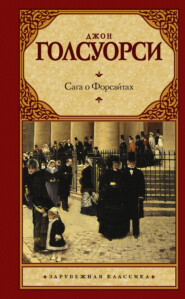По всем вопросам обращайтесь на: info@litportal.ru
(©) 2003-2025.
✖
Saint's Progress
Настройки чтения
Размер шрифта
Высота строк
Поля
“He seems a nice man, certainly; he has a nice smile, but strange views, I’m afraid.”
“He thinks the Germans are not much worse than we are; he says that a good many of us are bullies too.”
“Yes, that is the sort of thing I mean.”
“But are we, Daddy?”
“Surely not.”
“A policeman I talked to once said the same. Captain Fort says that very few men can stand having power put into their hands without being spoiled. He told me some dreadful stories. He says we have no imagination, so that we often do things without seeing how brutal they are.”
“We’re not perfect, Nollie; but on the whole I think we’re a kind people.”
Noel was silent a moment, then said suddenly:
“Kind people often think others are kind too, when they really aren’t. Captain Fort doesn’t make that mistake.”
“I think he’s a little cynical, and a little dangerous.”
“Are all people dangerous who don’t think like others, Daddy?”
Pierson, incapable of mockery, was not incapable of seeing when he was being mocked. He looked at his daughter with a smile.
“Not quite so bad as that, Nollie; but Mr. Fort is certainly subversive. I think perhaps he has seen too many queer sides of life.”
“I like him the better for that.”
“Well, well,” Pierson answered absently. He had work to do in preparation for a Confirmation Class, and sought his study on getting in.
Noel went to the dining-room to drink her hot milk. The curtains were not drawn, and bright moonlight was coming in. Without lighting up, she set the etna going, and stood looking at the moon-full for the second time since she and Cyril had waited for it in the Abbey. And pressing her hands to her breast, she shivered. If only she could summon him from the moonlight out there; if only she were a witch-could see him, know where he was, what doing! For a fortnight now she had received no letter. Every day since he had left she had read the casualty lists, with the superstitious feeling that to do so would keep him out of them. She took up the Times. There was just enough light, and she read the roll of honour – till the moon shone in on her, lying on the floor, with the dropped journal…
But she was proud, and soon took grief to her room, as on that night after he left her, she had taken love. No sign betrayed to the house her disaster; the journal on the floor, and the smell of the burnt milk which had boiled over, revealed nothing. After all, she was but one of a thousand hearts which spent that moonlit night in agony. Each night, year in, year out, a thousand faces were buried in pillows to smother that first awful sense of desolation, and grope for the secret spirit-place where bereaved souls go, to receive some feeble touch of healing from knowledge of each other’s trouble…
In the morning she got up from her sleepless bed, seemed to eat her breakfast, and went off to her hospital. There she washed up plates and dishes, with a stony face, dark under the eyes.
The news came to Pierson in a letter from Thirza, received at lunch-time. He read it with a dreadful aching. Poor, poor little Nollie! What an awful trouble for her! And he, too, went about his work with the nightmare thought that he had to break the news to her that evening. Never had he felt more lonely, more dreadfully in want of the mother of his children. She would have known how to soothe, how to comfort. On her heart the child could have sobbed away grief. And all that hour, from seven to eight, when he was usually in readiness to fulfil the functions of God’s substitute to his parishioners, he spent in prayer of his own, for guidance how to inflict and heal this blow. When, at last, Noel came, he opened the door to her himself, and, putting back the hair from her forehead, said: “Come in here a moment, my darling!” Noel followed him into the study, and sat down. “I know already, Daddy.” Pierson was more dismayed by this stoicism than he would have been by any natural out burst. He stood, timidly stroking her hair, murmuring to her what he had said to Gratian, and to so many others in these days: “There is no death; look forward to seeing him again; God is merciful” And he marvelled at the calmness of that pale face – so young.
“You are very brave, my child!” he said.
“There’s nothing else to be, is there?”
“Isn’t there anything I can do for you, Nollie?”
“No, Daddy.”
“When did you see it?”
“Last night.” She had already known for twenty-four hours without telling him!
“Have you prayed, my darling?”
“No.”
“Try, Nollie!”
“No.”
“Ah, try!”
“It would be ridiculous, Daddy; you don’t know.”
Grievously upset and bewildered, Pierson moved away from her, and said:
“You look dreadfully tired. Would you like a hot bath, and your dinner in bed?”
“I’d like some tea; that’s all.” And she went out.
When he had seen that the tea had gone up to her, he too went out; and, moved by a longing for woman’s help, took a cab to Leila’s flat.
III
On leaving the concert Leila and Jimmy Fort had secured a taxi; a vehicle which, at night, in wartime, has certain advantages for those who desire to become better acquainted. Vibration, sufficient noise, darkness, are guaranteed; and all that is lacking for the furtherance of emotion is the scent of honeysuckle and roses, or even of the white flowering creeper which on the stoep at High Constantia had smelled so much sweeter than petrol.
When Leila found herself with Fort in that loneliness to which she had been looking forward, she was overcome by an access of nervous silence. She had been passing through a strange time for weeks past. Every night she examined her sensations without quite understanding them as yet. When a woman comes to her age, the world-force is liable to take possession, saying:
“You were young, you were beautiful, you still have beauty, you are not, cannot be, old. Cling to youth, cling to beauty; take all you can get, before your face gets lines and your hair grey; it is impossible that you have been loved for the last time.”
To see Jimmy Fort at the concert, talking to Noel, had brought this emotion to a head. She was not of a grudging nature, and could genuinely admire Noel, but the idea that Jimmy Fort might also admire disturbed her greatly. He must not; it was not fair; he was too old – besides, the girl had her boy; and she had taken care that he should know it. So, leaning towards him, while a bare-shouldered young lady sang, she had whispered:
“Penny?”
And he had whispered back:
“Tell you afterwards.”
That had comforted her. She would make him take her home. It was time she showed her heart.
And now, in the cab, resolved to make her feelings known, in sudden shyness she found it very difficult. Love, to which for quite three years she had been a stranger, was come to life within her. The knowledge was at once so sweet, and so disturbing, that she sat with face averted, unable to turn the precious minutes to account. They arrived at the flat without having done more than agree that the streets were dark, and the moon bright. She got out with a sense of bewilderment, and said rather desperately:
“You must come up and have a cigarette. It’s quite early, still.”
He went up.
“Wait just a minute,” said Leila.
Sitting there with his drink and his cigarette, he stared at some sunflowers in a bowl – Famille Rose – and waited just ten; smiling a little, recalling the nose of the fairy princess, and the dainty way her lips shaped the words she spoke. If she had not had that lucky young devil of a soldier boy, one would have wanted to buckle her shoes, lay one’s coat in the mud for her, or whatever they did in fairytales. One would have wanted – ah! what would one not have wanted! Hang that soldier boy! Leila said he was twenty-two. By George! how old it made a man feel who was rising forty, and tender on the off-fore! No fairy princesses for him! Then a whiff of perfume came to his nostrils; and, looking up, he saw Leila standing before him, in a long garment of dark silk, whence her white arms peeped out.
“Another penny? Do you remember these things, Jimmy? The Malay women used to wear them in Cape Town. You can’t think what a relief it is to get out of my slave’s dress. Oh! I’m so sick of nursing! Jimmy, I want to live again a little!”

















